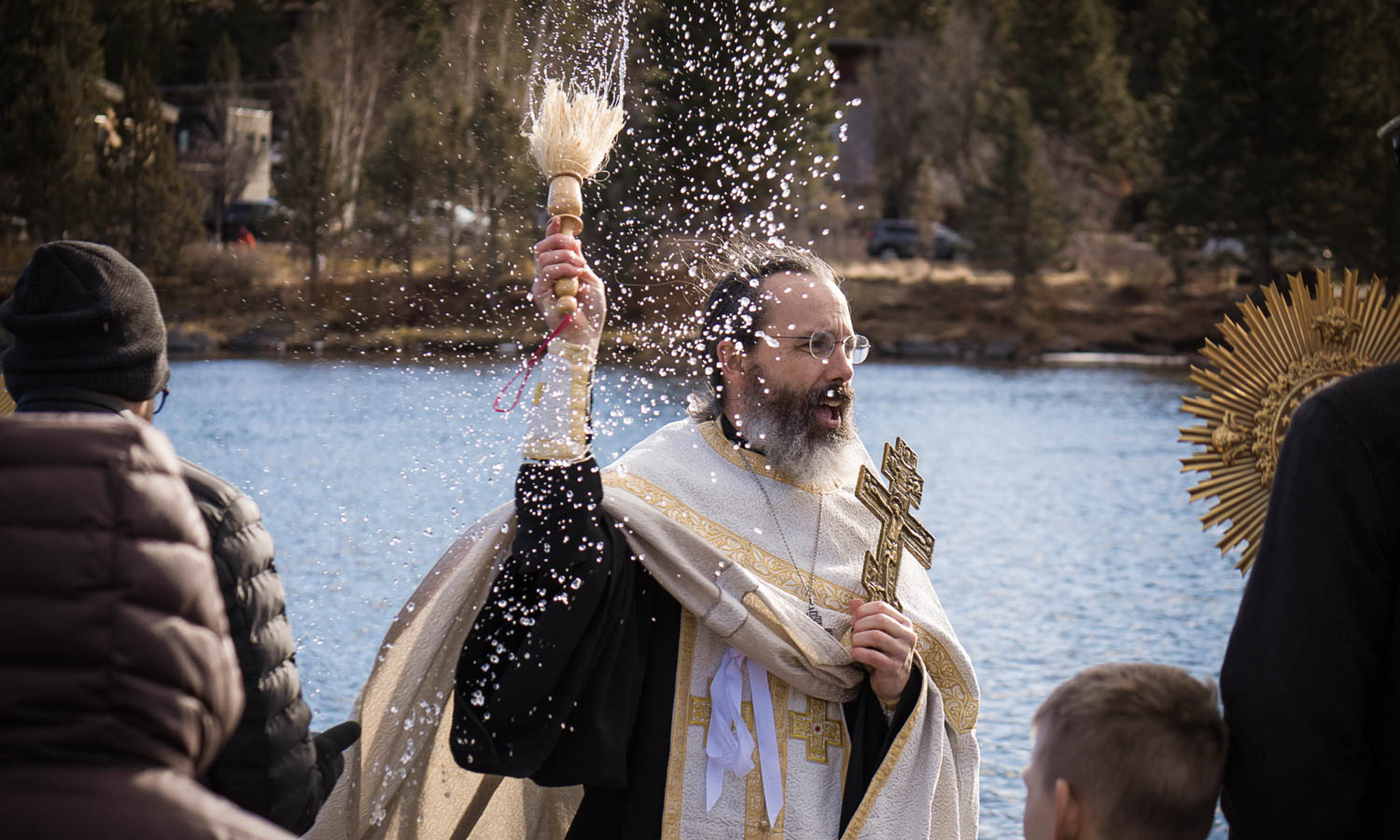Make no mistake: it is Jesus Christ, the Son of God, one of the holy Trinity—he who formed the heavens and the earth, it is the hands of the Creator himself—who heals the blind man in the passage we read today.
St. John Chrysostom points out: For since [the Jews] had heard that God made man from the dust of the earth, so also Christ made clay. … taking earth, and mixing it with spittle, he showed forth his hidden glory.
St. Ephrem the Syrian affirms this same point: “He gave a command to the light, and it was born from the darkness. Thus also here, he formed clay from his saliva, and he supplied what was lacking in creation…to show that what was lacking in nature was being supplied by his hand.”
And St. Theophylact of Ochrid completes this thought with a parable, of sorts: Let us suppose that a man builds a house but leaves one portion of it unfinished, for this reason: at a later time, if anyone should question if he were the builder, he could dispel any doubt on this score by completing the unfinished part to match perfectly with the original.
There is nothing accidental or haphazard in this healing. So it is with us—we may not see it, we may not comprehend it, but God is working: healing the infirmities; “revealing his hidden glory” in us, as Chrysostom said; “supplying what is lacking” in us, as St. Ephrem said; “dispelling doubt…by completing the unfinished part” as St. Theophylact said; confirming and establishing us in him.
We tend to misinterpret the “bad stuff” in life. This man was born blind. Blind is “bad”; it is not “good” to be blind…right?
But St. John Chrysostom points out: “Not only did [Christ] form or open [the man’s] eyes, but gave also the gift of sight.” And then, taking his point further, St. John continues: “I assert that he even received benefit from his blindness: since he recovered the sight of the eyes within.”
St. Theophylact of Ochrid questions the Blind Man directly: “How have you been treated unjustly, O man?” “I have been robbed of light,” he replies. “But what harm did you suffer by being deprived of material light? Now you have received not only physical vision, but that incomparable blessing—the enlightenment of the eyes of your soul.” Thus the affliction [continues St. Theophylact] was to the blind man’s benefit, and through his healing he came to know the true Sun of Righteousness. Therefore, the blind man was not wronged; he was blessed. The man, in his blindness, “was not wronged; he was blessed.”
What is the “blindness” in our life? What is that thing that we interpret as “bad”. That is the very thing God has allowed to benefit us…to bless us. We are blessed. That blindness, that bad thing? We are blessed with that very struggle. We are blessed with that temptation, with that weakness. We are blessed with that suffering. We are blessed with that pain. We are blessed with that sickness.
Honestly, it takes more faith than any of us have. But that is what makes it faith. Therefore, we need to throw off all excuses. It is not the other person; it’s us. It is not just some random sickness brought on by some scientifically-explained process of disease; it is a blessing from God. It is not that something inside us is broken and that we will never win victory over this passion; we have been blessed by God to struggle toward him…in that way, blessed to “prove the tested genuineness” (as St Peter calls it), the tested genuineness of our faith. Without the struggle, the prize is not worth much.
Throw off all those excuses, and receive the blessing with gladness, like the martyrs, exalting in the opportunity to be tortured, thankful that they can join in Christ’s suffering.
Step out in faith. Receive the blessing. And Christ will “dispel doubt…completing the unfinished part”; he will “reveal his hidden glory”; he will “supply what is lacking”; or like the man born blind, he will give “sight to the eyes within”.
